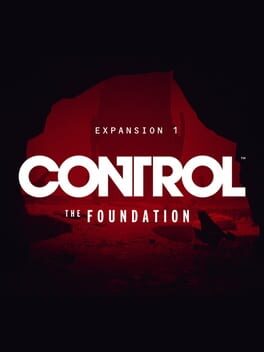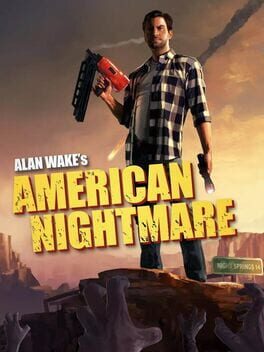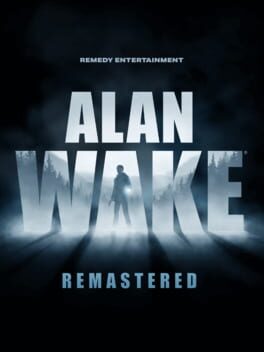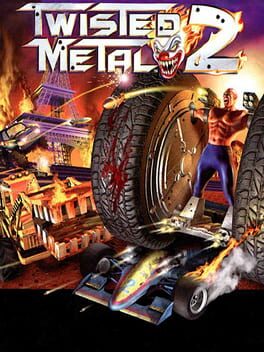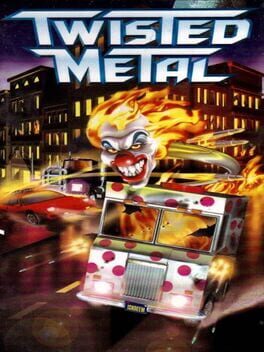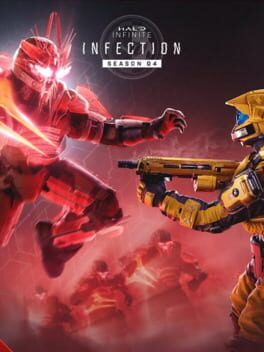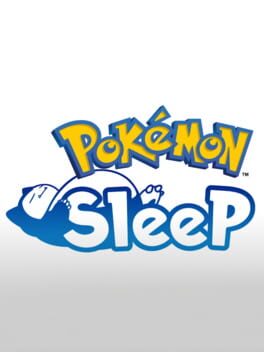ARW3
BACKER
2023
Beautiful puzzle-platformer! Excellent indie to breakup time spent between big AAA releases this year. This game boasts a 10/10 original soundtrack (Takeshi Furukawa of The Last Guardian fame is the composer!!). Additionally, the art direction is gorgeous and unique.
Planet of Lana is an easy recommendation to fans of the puzzle-platformer genre. It is not particularly lengthy or challenging, but that is to its benefit. Lana's journey is emotional, satisfying, and worth experiencing.
Planet of Lana is an easy recommendation to fans of the puzzle-platformer genre. It is not particularly lengthy or challenging, but that is to its benefit. Lana's journey is emotional, satisfying, and worth experiencing.
Insomniac just gets it. They get Spider-Man. They get who he fundamentally is as a character, how he might interact with others, and how his values persevere in the face of overwhelming challenge. Marvel's Spider-Man 2 is an 'amazing' entry in what continues to be the 'ultimate' Spider-Man video game series. Awkward, perhaps forced parrying gimmick aside, the combat shines and improves upon what we saw with the 2018 entry or the Miles Morales spin-off game. NYC is beautiful, with Manhattan being thoughtfully joined by Queens and Brooklyn. The traversal has also never felt better, with the wingsuit serving Miles and Peter favorably as they traverse the expanded map. Speaking of the two spider-men, their relationship is certainly a highlight of the storytelling on display here. Yuri Lowenthal and Nadji Jeter deliver terrific performances throughout. The supporting cast also make meaningful contributions, and this game also provides the greatest Venom story outside of the comics, comfortably. Insomniac unfortunately found themselves falling into certain tropes with the means by which they deliver some of their storytelling, slowing down the action in ways that were at times ungraceful and non-contributory, but largely the overall journey is a fantastic one. I think it is fair to critique repetitive open world activities and what are functionally Interactable cutscenes (I.e. picking up trash around the house). Playing as Peter or Miles is necessary to do these characters justice, but we need to learn more about them when we assume their non-costumed roles... despite being a refreshingly brief AAA game, some of these sequences fluff the narrative without aspiring to be greater in their character building. However, I do not want to undermine just how incredible the minute-to-minute gameplay is for the vast majority of this title's runtime. Playing as Spider-Man has never felt better, and this game comfortably sits amongst the best super-hero games out there.
The spectacles, boss fights, twists, and set-pieces of the main narrative are amongst the best gaming experiences you can experience this year. Side quests are a bit disappointing in comparison, with a few prominent exceptions. They are surprisingly few in number, and a couple of the ones provided take you out of the shoes of the two Spider-Men without compelling reason. There still seems to be some reservation about pulling further from Spider-Man's rogue gallery for side quests, as well as a hesitation to provoke more elaborate storytelling within them. The point on abandoning Peter and Miles for side quests is the most frustrating of these nitpicks, given just how superb the core gameplay is here.
Yet still, Marvel's Spider-Man 2 is one of the easiest games to recommend from this year. The action is kinetic, the experience is highly polished, and game demonstrates an enduring, loving respect for everything in the world of "Spider-Man."
The spectacles, boss fights, twists, and set-pieces of the main narrative are amongst the best gaming experiences you can experience this year. Side quests are a bit disappointing in comparison, with a few prominent exceptions. They are surprisingly few in number, and a couple of the ones provided take you out of the shoes of the two Spider-Men without compelling reason. There still seems to be some reservation about pulling further from Spider-Man's rogue gallery for side quests, as well as a hesitation to provoke more elaborate storytelling within them. The point on abandoning Peter and Miles for side quests is the most frustrating of these nitpicks, given just how superb the core gameplay is here.
Yet still, Marvel's Spider-Man 2 is one of the easiest games to recommend from this year. The action is kinetic, the experience is highly polished, and game demonstrates an enduring, loving respect for everything in the world of "Spider-Man."
A truly wonderful, triumphant reimagining of an absolute classic. Without having played the original FF7, I may only comment so much on how this game evolved and pivoted away from its original story, but I can at least say I am hooked. The characters are brought to life fantastically, with superb performances throughout. The combat system, a mix of turn-based as well as fast paced action, is sublime. In proceeding through the "hard" difficulty play-through, I grew to appreciate just how complex and refined this system truly is. It is especially important to commend the visuals and soundtrack on display here, as they are truly masterful at times. There is naturally some room for improvement in the second part of the FF7 remake trilogy, "Final Fantasy VII Rebirth." FF7 Remake is held back ever-so-slightly by some uninspired side quests in the early goings, dips in the pacing, and slowdowns in the gameplay whether deriving from forced walking at 0.2x speed or the classic video game shimmy and wall squeeze. Minor nitpicks aside, this was an absolutely phenomenal experience that demanded engrossment... I am now "all in" on Final Fantasy 7, fully intending to play updated port of the original PlayStation experience as well as the recent "Crisis Core" remaster.
2020
This review contains spoilers
The story needed many beginnings, many streams, streams that turned into a river, a flood, and then an ocean.
A perfect prologue for Alan Wake II, interlinking the events of 2010 in "Bright Falls" with the investigative efforts of the FBC. The darkness returns in a clever manner, also bringing with it one of the best boss battles in Control.
The Third Thing was a Monster
A perfect prologue for Alan Wake II, interlinking the events of 2010 in "Bright Falls" with the investigative efforts of the FBC. The darkness returns in a clever manner, also bringing with it one of the best boss battles in Control.
The Third Thing was a Monster
More great content for an already great game. The Foundation provides some fun, wacky side adventures and quests to get lost in. It also serves as Jesse's first test in her new role since the conclusion of the main game, but doesn't necessarily give us too much of an idea about what is yet to come for the FBC and The Oldest House. I quite enjoyed the "One of Us" hunt as well as taming two particular altered objects... Remedy's fascination with film is ceaseless, but charming as ever.
2019
My high takeaway from Control is the same as it has been for other modern Remedy games: It is wonderfully weird. The Oldest House and the Federal Bureau of Control (FBC) are formidable to understand at first, offering many questions upfront but stringing along the answers over a roughly 10-15 hour main campaign and a healthy offering of side content. The world Remedy is building here is nonetheless engrossing. Navigating The Oldest House might not initially be as invigorating as the narrative threads, but I found myself quite comfortable with the task after a couple hours with the game. There is a lot here to love. Jesse Faden, the protagonist, comes across a bit blunted at first. She speaks with a flat affect, but ultimately a subtle tone of dry humor and unnerving acceptance regarding the bizarre series of events that unfold. Other characters are written with contrasting enthusiasm, such as the excellently acted Dr. Darling who appears throughout various Live Action recordings littered through the game world. Ahti, the janitor, is a particularly excellent character. He leans into the sheer mystery and unabashed quirkiness Control builds its identity on.
The Oldest House itself, as a character, surprises. I approached exploration in Control with incredulity, fully expecting the excellent visual fidelity and art direction to be marred by repetitive environments. However, this is proven untrue by The Oldest House's unwavering commitment to surprising the player with its shifting structures and secretive connections. Yes The Oldest House and the side quests it harbors are absolutely worth exploring, further unraveling the nature of what the FBC is. There are some outstanding highlights throughout the main missions too, particularly one sequence involving a "maze," to put it vaguely. Remedy also outdid themselves with the combat in this game. Telekinesis has never quite felt so good in a video game, especially while coexisting with a smooth 60fps performance, environmental destruction, various explosive effects, and some of the best visuals in modern gaming from a pure fidelity perspective. 1000 enemies later and hurling a fire extinguisher across the room is still exhilarating. Gunplay and other abilities are similarly fun, giving an overall polished combat experience. The game would be better off without its incessant commitment to spamming you with personal/weapon "mod" drops and also with time-dependent radiant quests that serve no purpose beyond giving you more excuses to dabble with the combat. Another point of criticism I could see leveraged towards the game is its convoluted storytelling nature, albeit this is something I found charming and rewarding to solve. While the narrative delivery might be obtuse to some, I would wager the scattered puzzles are more likely to be appreciated as being quite clever. I normally don't clamor for more puzzles in games, but I think some of the interactive ones on display here justified having more in the game than we got.
Overall, Remedy has constructed something masterful with Control. Its intricate connectedness to the world they have built with "Alan Wake" intrigues to a degree that might be unparalleled in terms of connected universes we see in the gaming medium. The combat is slick and satisfyingly unique. The art direction and overall wackiness of the experience elevates it, even if some of the flavor text comes by way of collectible notes or non-mandatory side content. From music videos to sentient refrigerators, Control surprises with glee and charming distinctiveness.
The Oldest House itself, as a character, surprises. I approached exploration in Control with incredulity, fully expecting the excellent visual fidelity and art direction to be marred by repetitive environments. However, this is proven untrue by The Oldest House's unwavering commitment to surprising the player with its shifting structures and secretive connections. Yes The Oldest House and the side quests it harbors are absolutely worth exploring, further unraveling the nature of what the FBC is. There are some outstanding highlights throughout the main missions too, particularly one sequence involving a "maze," to put it vaguely. Remedy also outdid themselves with the combat in this game. Telekinesis has never quite felt so good in a video game, especially while coexisting with a smooth 60fps performance, environmental destruction, various explosive effects, and some of the best visuals in modern gaming from a pure fidelity perspective. 1000 enemies later and hurling a fire extinguisher across the room is still exhilarating. Gunplay and other abilities are similarly fun, giving an overall polished combat experience. The game would be better off without its incessant commitment to spamming you with personal/weapon "mod" drops and also with time-dependent radiant quests that serve no purpose beyond giving you more excuses to dabble with the combat. Another point of criticism I could see leveraged towards the game is its convoluted storytelling nature, albeit this is something I found charming and rewarding to solve. While the narrative delivery might be obtuse to some, I would wager the scattered puzzles are more likely to be appreciated as being quite clever. I normally don't clamor for more puzzles in games, but I think some of the interactive ones on display here justified having more in the game than we got.
Overall, Remedy has constructed something masterful with Control. Its intricate connectedness to the world they have built with "Alan Wake" intrigues to a degree that might be unparalleled in terms of connected universes we see in the gaming medium. The combat is slick and satisfyingly unique. The art direction and overall wackiness of the experience elevates it, even if some of the flavor text comes by way of collectible notes or non-mandatory side content. From music videos to sentient refrigerators, Control surprises with glee and charming distinctiveness.
"I know that without that balance within, I become my own worst enemy. Now I strive for equilibrium, and with that, I'm strong enough to get where I want."
And with that, Alan echoes the sentiment of the returning in-game band, the Old Guards of Asgard. They make their presence felt once again with a new song, "Balance Slays the Demon." As can be expected with Alan Wake, everything is thematic, it is weird, and it is wonderful. The featured song served as one of many such examples.
Alan Wake's American Nightmare was a fun little jaunt back into the wacky Alan Wake universe. The core combat of Alan Wake (2010) is brought forward here, but with an expanded arsenal and more satisfying demons to slay. I definitely enjoyed this brief venture, mundane assignments or repetitive environments aside. Although the narrative is not nearly as compelling as its predecessor, I think American Nightmare serves to further build Alan Wake's story, setting itself two years after the second Alan Wake DLC, The Writer. I am eager to see if there are ramifications secondary to Alan Wake's interactions with "Scratch Man" in the long awaited Alan Wake II. American Nightmare certainly gives some useful insight into the protagonist's thoughts in the meantime. I collected all 52 manuscript pages in this pseudo-expansion, and it felt overall worthwhile.
"I've seem the enemy, and it's me."
And with that, Alan echoes the sentiment of the returning in-game band, the Old Guards of Asgard. They make their presence felt once again with a new song, "Balance Slays the Demon." As can be expected with Alan Wake, everything is thematic, it is weird, and it is wonderful. The featured song served as one of many such examples.
Alan Wake's American Nightmare was a fun little jaunt back into the wacky Alan Wake universe. The core combat of Alan Wake (2010) is brought forward here, but with an expanded arsenal and more satisfying demons to slay. I definitely enjoyed this brief venture, mundane assignments or repetitive environments aside. Although the narrative is not nearly as compelling as its predecessor, I think American Nightmare serves to further build Alan Wake's story, setting itself two years after the second Alan Wake DLC, The Writer. I am eager to see if there are ramifications secondary to Alan Wake's interactions with "Scratch Man" in the long awaited Alan Wake II. American Nightmare certainly gives some useful insight into the protagonist's thoughts in the meantime. I collected all 52 manuscript pages in this pseudo-expansion, and it felt overall worthwhile.
"I've seem the enemy, and it's me."
Where there is Coral, there is Blood
Impeccable Mech Combat with an intriguing setting and fluid controls. Boss fights are appropriately imposing and gratifying, as I have come to expect out of every FromSoftware game. There are some standout, spectacular moments throughout this campaign that are like nothing I've seen elsewhere. There are also missions that are more mundane and have tasks or environmental obstacles that prove to be more obnoxious than they are fun to navigate. The narrative leading up to my ending was predictable but interesting, and I hope to delve into it further with more campaign runs. However, this game absolutely sings when it lets you experience what it does best: the combat. It is elevated by impressive verticality, the before-mentioned fluid controls, epic levels of customization and build-craft... all while running silky smooth. The performance on Xbox Series X through my first play-through was impeccable. 60fps was maintained throughout, and I experienced 0 crashes or bugs (aside from pre-order content unlocking late). The combat and general polish of the game are accompanied by a few caveats. AC VI is somewhat held back by an unsteady consistence in mission quality, lacking enemy variety, environmental interference with camera angles (only in particular fights), and repetitive environments or architecture. Qualms aside, Armored Core VI is a great video game that absolutely deserves to be played even in a year supersaturated with outstanding game releases. There is no other game on modern systems that realizes the Mecha fantasy like this one.
I have already started NG+ and aim to spend more time on Rubicon seeking out other endings and blowing up as many mechs as dare cross my path.
Impeccable Mech Combat with an intriguing setting and fluid controls. Boss fights are appropriately imposing and gratifying, as I have come to expect out of every FromSoftware game. There are some standout, spectacular moments throughout this campaign that are like nothing I've seen elsewhere. There are also missions that are more mundane and have tasks or environmental obstacles that prove to be more obnoxious than they are fun to navigate. The narrative leading up to my ending was predictable but interesting, and I hope to delve into it further with more campaign runs. However, this game absolutely sings when it lets you experience what it does best: the combat. It is elevated by impressive verticality, the before-mentioned fluid controls, epic levels of customization and build-craft... all while running silky smooth. The performance on Xbox Series X through my first play-through was impeccable. 60fps was maintained throughout, and I experienced 0 crashes or bugs (aside from pre-order content unlocking late). The combat and general polish of the game are accompanied by a few caveats. AC VI is somewhat held back by an unsteady consistence in mission quality, lacking enemy variety, environmental interference with camera angles (only in particular fights), and repetitive environments or architecture. Qualms aside, Armored Core VI is a great video game that absolutely deserves to be played even in a year supersaturated with outstanding game releases. There is no other game on modern systems that realizes the Mecha fantasy like this one.
I have already started NG+ and aim to spend more time on Rubicon seeking out other endings and blowing up as many mechs as dare cross my path.
2021
Alan Wake, as a game: ★★★★
Alan Wake's remastering efforts: ★★★
An absolutely unique gem, special for its time, and with a narrative intrigue that ages well. Alan Wake is a wonderful, contained action-adventure oozing with style. That style takes influence from a slew of television, cinema, musical, video game, and literary sources in an endearing way. That said, Alan Wake is in itself, fresh and novel. In addition to the well-crafted story, I especially enjoyed the soundtrack and the general atmosphere of the game's setting. I look forward to exploring this deeply weird world more with Control, American Nightmare, and Alan Wake's imminent sequel.
If I were to rate the remastering effort itself, my reception would be much worse. I do not think the remaster offered much in the way of updated performance or gameplay. There is a significant visual improvement, but it comes with a compromised product laden with bugs. Oddities with audio are persistent. However the most frustrating items were the progression glitches. Upon completing the game, the title deleted 2 episodes (and roughly 3 hours) of progress… disabling my ability to replay the final episode and resetting collectible statistics to their prior state. This is frankly unacceptable for a 'remaster' that has been out for as long as this one has. If such a bug is not prevalent in the backwards compatible version, I would recommend playing the game that way instead. On Series X, via FPS boost, the original can still be played at 60fps.
Alan Wake's remastering efforts: ★★★
An absolutely unique gem, special for its time, and with a narrative intrigue that ages well. Alan Wake is a wonderful, contained action-adventure oozing with style. That style takes influence from a slew of television, cinema, musical, video game, and literary sources in an endearing way. That said, Alan Wake is in itself, fresh and novel. In addition to the well-crafted story, I especially enjoyed the soundtrack and the general atmosphere of the game's setting. I look forward to exploring this deeply weird world more with Control, American Nightmare, and Alan Wake's imminent sequel.
If I were to rate the remastering effort itself, my reception would be much worse. I do not think the remaster offered much in the way of updated performance or gameplay. There is a significant visual improvement, but it comes with a compromised product laden with bugs. Oddities with audio are persistent. However the most frustrating items were the progression glitches. Upon completing the game, the title deleted 2 episodes (and roughly 3 hours) of progress… disabling my ability to replay the final episode and resetting collectible statistics to their prior state. This is frankly unacceptable for a 'remaster' that has been out for as long as this one has. If such a bug is not prevalent in the backwards compatible version, I would recommend playing the game that way instead. On Series X, via FPS boost, the original can still be played at 60fps.
2023
Final Fantasy XVI is an absolute triumph. This franchise's glorious return is marked by phenomenal action combat, scrupulous attention to world-building, an impeccable OST, and a grandiloquent celebration of all things "Final Fantasy." Although light on the qualities that we would typically attribute to a role-playing game, make no mistake about the veracity of that last assertion. This game, outstanding in its own right, serves as a love letter to the many Final Fantasy games that came before it. Within a new world, with new lore, there is a slew of creatures, names, weapons, themes, and icons of the franchise realized in a reverential manner. The kinetic combat is naturally a departure from previous Final Fantasy games, but it is a terrific venture. Fast-paced, evolving, responsive and flashy… FF XVI's combat provides a power-fantasy that is unapologetically fun. It truly shines in the grandiose boss battles that mark the most iconic moments in Clive Rosfield's journey. Speaking of Clive, he is perhaps one of the best realized protagonists in a video game of recent memory. Ben Starr delivers a superb performance as Clive. The supporting cast of Ralph Ineson, Susannah Fielding, Logan Hannan, and others deliver fantastic efforts as well. Clive's closest companion, Torgal, is of course an absolute standout. In fact, Torgal might just be one of the greatest canine companions in all of video games. It is exceedingly difficult not to be enamored with the cast of Final Fantasy XVI. While some of the earlier side quests feel relatively bland, there are some absolutely phenomenal efforts in the later goings that congeal the complexities of the supporting cast and prompt stronger understandings of their motivations or relationships. I will not delve into the intricacies of these side tales or the main story and overarching narrative here with these thoughts, as inadvertently spoiling what I found to be a special experience is not something I want to risk. Suffice to say, FF XVI embarks players on an emotional and captivating journey.
Clive's journey is truly an epic one: it defined only in part by the before said boss encounters, the thoughtful motivations for the main crew's actions, the stunning locales the game brings you to, and the complexities of a deeply divided society. Final Fantasy XVI's shortcomings are minimal in nature. Difficulty settings aren't particularly well-realized, electing to make enemies more "spongy" rather than tweak the challenge through more meaningful implementations. Performance leaves something to be desired when traversing from mission to mission, generally not holding up in its 60fps performance mode, although more consistent in combat. The last reasonable complaint would be the presence of some filler content, with some side and main quests disrupting pacing and not contributing meaningfully to otherwise wonderful world-building. It cannot be emphasized enough how complex and deeply thought out this world is too. "Active Time Lore" and designated NPCs assure that players may always keep up with the rapid pacing by which you learn more about this world, making it quite approachable in spite of its richness. Further adding to the realization of this world is superb visual fidelity and art direction. By the end of my two playthroughs, my PS5 harddrive was laden with screenshots of FF XVI - it is simply stunning. All of this is packaged together with a moving, transcendent original sound track befitting of the epic nature of the tale FF XVI seeks to tell. Final Fantasy XVI is a phenomenal title that I would recommend to nearly anyone. It represents an inspired return for this beloved franchise, supported by incredible performances and a loving veneration for Final Fantasy's 36 year history.
FFXVI is, without doubt, a fantasy worth witnessing.
Clive's journey is truly an epic one: it defined only in part by the before said boss encounters, the thoughtful motivations for the main crew's actions, the stunning locales the game brings you to, and the complexities of a deeply divided society. Final Fantasy XVI's shortcomings are minimal in nature. Difficulty settings aren't particularly well-realized, electing to make enemies more "spongy" rather than tweak the challenge through more meaningful implementations. Performance leaves something to be desired when traversing from mission to mission, generally not holding up in its 60fps performance mode, although more consistent in combat. The last reasonable complaint would be the presence of some filler content, with some side and main quests disrupting pacing and not contributing meaningfully to otherwise wonderful world-building. It cannot be emphasized enough how complex and deeply thought out this world is too. "Active Time Lore" and designated NPCs assure that players may always keep up with the rapid pacing by which you learn more about this world, making it quite approachable in spite of its richness. Further adding to the realization of this world is superb visual fidelity and art direction. By the end of my two playthroughs, my PS5 harddrive was laden with screenshots of FF XVI - it is simply stunning. All of this is packaged together with a moving, transcendent original sound track befitting of the epic nature of the tale FF XVI seeks to tell. Final Fantasy XVI is a phenomenal title that I would recommend to nearly anyone. It represents an inspired return for this beloved franchise, supported by incredible performances and a loving veneration for Final Fantasy's 36 year history.
FFXVI is, without doubt, a fantasy worth witnessing.
2023
Twisted Metal 2 was an overall improvement on its predecessor. The level design is more inspired and interesting, with the overall "Special" and regular weapons available to the player being more interesting combat contributors than in the prior game. Still, even beyond the ice level, all the cars feel as though they're driving with skates on - the hypersensitivity applied here does not lend itself well to the vehicular combat. AI can be excessively oppressive on higher difficulties, seemingly doing no damage to each other throughout the match and spamming the player with near-infinite abilities as well as absurd precision with even backwards attacks. The boss fights too feel a bit unbalanced, yet can be overcome with player knowledge of special button combos (not explained in-game, but the shield is your friend!). Twisted Metal 2 is a thoughtful continuation of a wonderfully weird world, and at the time of its release unique in its promotion of pure vehicular combat.
2023
Proper, silly good time. The ridiculous premise aged well enough, but the controls? Less so. Cars drive a bit janky, like the sensitivity has been cranked up to 11. Higher difficulties feel a bit oppressive, but are manageable once one develops some familiarity with the controls and strategies needed to consistently progress. All and all, a very cool title to see added to the PS Classics Collection.
This is a pretty awesome season so far. The content cadence has been great, with events and meaningful playlist updates being made quite regularly. Infection made a triumphant return with interesting tweaks to its base mode. New maps, both from Forge creators and 343i have largely been great. "Squad Battle" 8v8 is a resounding success... this is some of the most fun I have had playing Halo Infinite since launch. If you ever wondered if adding Infinite's sandbox to Rat's Nest and Valhalla would be awesome, the answer is "yes." Troublesome bugs have been quashed with this season, including settings resets. However, de-sync remains an issue. Other complaints include the slow rollout of "cross-core" cosmetics, the banshee continuing to feel like a papier-mâché plane (desperately needs a defensive and offensive buff), and missing modes (griffball, assault, etc).
Upon completing the S4 battlepass, I was at the Gold Cadet Grade III Career Rank. The career system is a welcomed addition to Halo Infinite. The custom games browser is also a reliable source of a great time. I aim to continue to play this season, working towards platinum career tier, and am eager to see "Husky Raid" return as 343i promised. The new live service leadership has Halo going in the right direction.
Upon completing the S4 battlepass, I was at the Gold Cadet Grade III Career Rank. The career system is a welcomed addition to Halo Infinite. The custom games browser is also a reliable source of a great time. I aim to continue to play this season, working towards platinum career tier, and am eager to see "Husky Raid" return as 343i promised. The new live service leadership has Halo going in the right direction.
2023
Had a nightmare the first night I tried this. Still got a Bulbasaur the next morning, which was kinda neat. Funny idea this game, but it asks for too much time.. the systems are a bit convoluted and the tutorial dialogues drag out. It also kind of gives your phone too much of a workout. As far as sleep tracking accuracy goes? There are better options, albeit less gamified. Also, this game weirdly stipulates that "8.5 hours" is the ideal sleep length for a young adult... and this is needed for maximum "points" on a given night, which is strange. Overall, this is an odd package that would have ironically benefited from being more simple.
2020
Cute, simple but polished and well realized platformer. Although it was clearly designed to give a crash course orientation to the Dualsense 5 In addition, it does so beautifully and with glee. Astro's Playroom provides a nostalgic trip down PlayStation's Memory Lane. This was a wonderful title to have bundled with the PS5.




